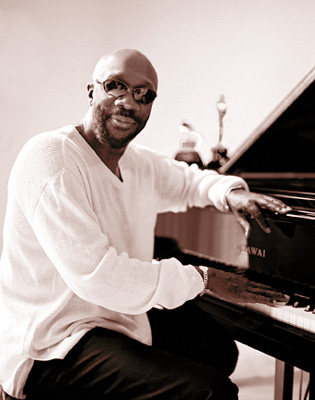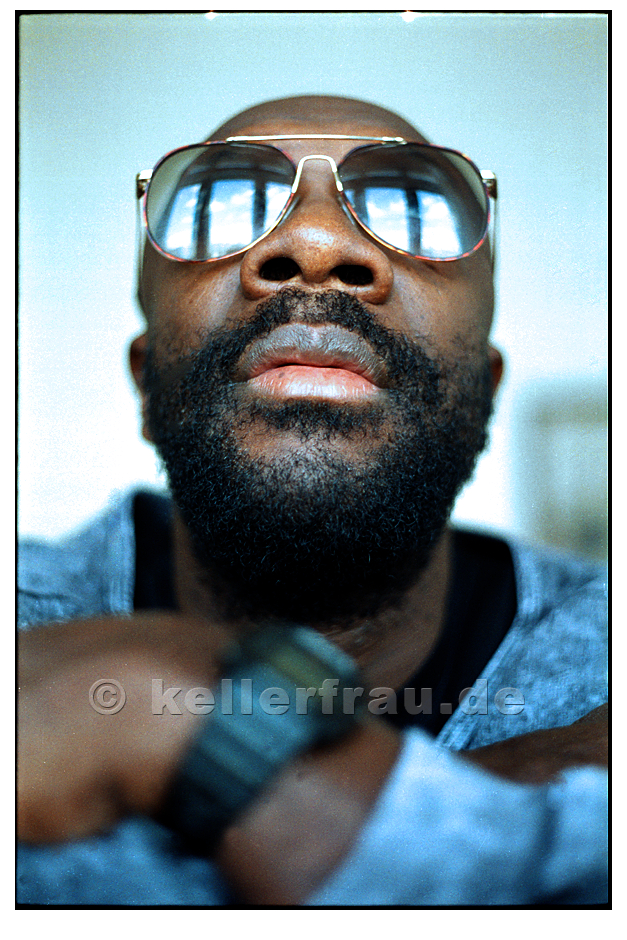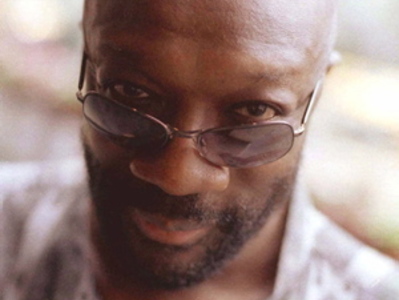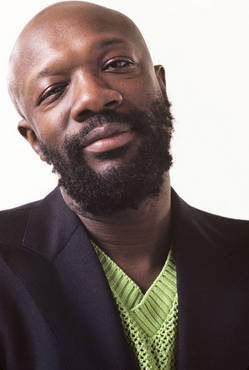ISAAC HAYES & DIONNE WARWICK / “Isaac Hayes Covers Mixtape”

Isaac Hayes was a major creator of our music both as a composer and as an interpreter of songs written by others. There could be a long and evidence-heavy argument on both sides of the question of whether Ike’s original songs were better than his covers. I think he was a genius at both. This week’s mixtape focuses on some of his covers.
Isaac Lee Hayes Jr. was born on August 20, 1942, in Covington, Tennessee. Reared by his grandparents because of the death of his mother when Hayes was a toddler, Isaac was singing in church before he was old enough to attend school and was a professional musician by the time he was in high school. He moved on to Memphis, hooked up with Stax, partnered with songwriter David Porter and authored over 200 singles for Stax artist. The Hayes/Porter combination produced classics of Soul music for artists such as Sam & Dave, Carla Thomas, The Soul Children and Johnnie Taylor. Hayes went on to win an Academy Award for his score for the movie Shaft—the theme song became Hayes' biggest seller. Hayes long and prolific career ended on August 10, 2008.
1. "Monologue" & “Our Day Will Come”
When Hayes first made his mark as a solo artist, his signature was spoken word introductions and long, smoldering songs that easily exceeded a quarter hour. The opening selection “Our Day Will Come” with an introductory rap is quintessential Isaac Hayes. From the opening with the crickets as ambient background to the close with an acoustic bass solo over a choral-sweetened vamp, these are archetypal Ike elements. This beautiful track is available on the 1970 album To Be Continued.
One important note: as physically imposing as he was, Isaac Hayes was also capable of great tenderness, absolutely great. The typical hallmark of the male lover is hardness: a man, a full grown, hard-ass man is tough. But Ike gave us something else. Gave us the reality of male tears, heartache so deep that hurt is too shallow a word to use to describe the profound pain that a man in love can feel. He was capable of immense sensitivity, a knowing and caring response to the feelings of others.
This song is one of the most optimistic love songs of all time. Ike is being drafted into the Vietnam War but is confident not only that he is going to safely return but also supremely confident that the love of he and his beloved will also survive; his song is so strongly rendered we believe him.
2. “By The time I Get To Phoenix”
Other than “Shaft,” this is the song most associated with Isaac Hayes. Somehow, radio DJs could not resist playing the whole song, especially on late night programs. Think on this: what does it take for an artist to record and release an eighteen minute song at a time when the average song length on the radio was three to four minutes, five at the max? Hayes' 1969 groundbreaking album, Hot Buttered Soul, only had four tracks on it.
Listening to it now—over thirty years since it was recorded—as old as the story of love betrayed is, Ike’s version of this song still sounds fresh. This recording strikes us just as sincerely as it did when we first would sit in the driveway delaying going inside so we could hear the whole song. The arrangement was a profound mix of jazz and classical elements. The carefully constructed mosaic of big band and funk combo, a pleading baritone buttressed by soaring strings, and the climax replete with trumpet fanfares, organ flourishes and jackhammer snare drum beats always excites me.
Sometimes I believe we underestimate our own genius. We take our musical greatness for granted. The fact that a young man raised in the segregated south, miseducated by the system, denigrated and dismissed, could uplift himself and an entire generation of black people who were seeking a way out of the deathtrap of systemic racism and economic exploitation, that alone is laudatory, but when you add to that reality Hayes' intuitive use of semiotic imagery to effect the power of cultural transformation, only then can we fully appreciate Hayes' genius.
In "By The time I Get To Phoenix" Hayes uses a song about infidelity as a vehicle to express the dignity of not accepting misuse and abuse—the political implications of the song may be lost on people in the 21st century but back when Hayes released it, back when his nom de guerre was “Black Moses,” back before the Red Sea of virulent racism had yet to part, back then one of the reasons we responded so strongly to Isaac Hayes and to songs like “By The Time I Get To Phoenix” was very simply because we all had some social situations we needed to leave behind.
3. “I Say A Little Prayer/By The Time I Get To Phoenix”
Dionne Warwick is another artist whose talent is routinely underestimated. Her prowess in vocal terms had both a lyrical and melodic aspect. She could take clichés and make them sound profound. Had she not focused almost entirely on a career as a pop singer, she probably would have received more of the praise her profound talent deserved. Listen to the subtlety of her phrasing; listen to how she makes you believe what she is saying.
This particular mixing of the two songs is a master arrangement. We know both songs and so hear the melody in our heads as we wonder how they are going to manage to make the dissimilar melodic arcs merge and work together. I wish Dionne and Ike had done more like this.
4. “I Just Don’t Know What To Do With Myself/Walk On By”
Is less an arrangement and more of a groove; a groove that Hayes excels at hitting and which no one associates as the kind of music that Dionne would do. That little fuzz-guitar vamp that announces Ike’s version of “Walk On By” is an excellent example of the difference in their approaches, and yet, even on unfamiliar turf, Dionne doesn’t loose her footing, in fact she high steps as though it were her arrangement. 
Listen to how Ms. Warwick bends the melody and makes it fit the groove while all the while continuing to sound like Dionne Warwick. It’s an aural illusion. We know we’re listening to Ike’s version but we’re hearing Dionne Warwick, and not just Dionne singing to Ike’s groove, Dionne raises the ante and is hard bopping to the funky groove and thereby quickly turning Ike's groove into Dionne's groove.
Ike and Dionne’s out-of-print, 1977 album A Man And A Woman is uneven, most of it only mildly interesting but when they duet, it’s a stunning pas de deux. What is especially remarkable is how well Dionne demonstrates her ability to be a soul singer. She is especially proficient in the closing two minutes of improvising over the groove. All Dionne’s church roots are revealed as she repeats and repeats, and repeats “walk on by” both comfortably and effectively adding little ad libs.
5. “All In The Game”
Isaac Hayes excels at these half-slow/half-fast, rocking back-and-forth tempos. I think it’s the composer and arranger in him more than the balladeer that makes these kind of songs work. Even when he’s not singing, the song is strong, the lush arrangement is a perfect couch for lounging on the weekend or, more likely, lovingly cuddling with someone whose curves immaculately fit yours. "All In The Game" is available on the 1996 album, The Best of Isaac Hayes: The Polydor Years.
6. “Fragile”
Magicians pull rabbits out of hats, Isaac Hayes pulls a symphony out of a pop song. Over three years ago (June 19, 2005) Ike’s version of “Fragile” on his 1995 album Branded was one of the first songs we shared on BoL. I return to it because covers don’t get any better than this—it’s a monumental musical achievement, from the interlocking rhythms to the carpet of electric guitars, augmented by an acoustic guitar in the third movement, then there are all those power chords and French horns and soft strings and exquisite chorus (with a cameo by a children’s choir), all of that augmented by little things like the tinkling triangle in the last movement—Ike was at the top of his game as both composer and arranger on this one.
For those who may not have recognized it before, this song is proof that funk and symphonic orchestration can groove together. More importantly, it’s also evidence of the musical genius of Isaac Hayes. Plus, I need to make mention of Hayes’ social awareness, his advocacy of environmental responsibility.
Isaac Hayes was at the forefront of socially-aware cultural artists. Even though he didn’t do overtly political songs, he tapped the zeitgeist of the seventies and encouraged his audience to strive to be better, strive to improve the social and physical environment. He accepted the responsibility of helping to make the world a better and more beautiful place than when he arrived on the scene.
Thank you Isaac Hayes for the inspiration and beauty of your music.
—Kalamu ya Salaam
This entry was posted on Monday, November 10th, 2008 at 1:13 am and is filed under Cover. You can follow any responses to this entry through the RSS 2.0 feed. You can leave a response, or trackback from your own site.
3 Responses to “ISAAC HAYES & DIONNE WARWICK / “Isaac Hayes Covers Mixtape””
November 11th, 2008 at 5:42 am
Hmmm… interesting. “By The time I Get To Phoenix,” the title I guess was the inspiration for Public Enemy’s “By The time I Get To Arizona” criticizing the state’s refusal to recognize Dr. King’s holiday in the early 90s.
November 13th, 2008 at 11:27 am
Hi, being a long time fan of Mr Hayes, I bought “Branded” and its counterpart “Raw & Refined” and still love both CDs… Fragile is sooooo good as is Hyperbolicsyllabicsesquedalymistic. THX for the post.
DJM
Leave a Reply
| top |